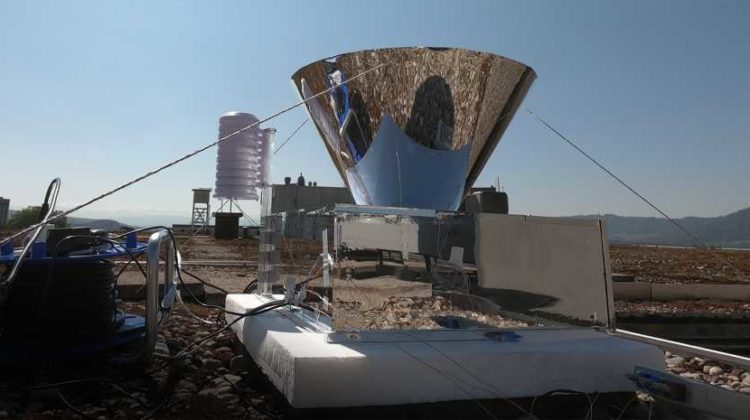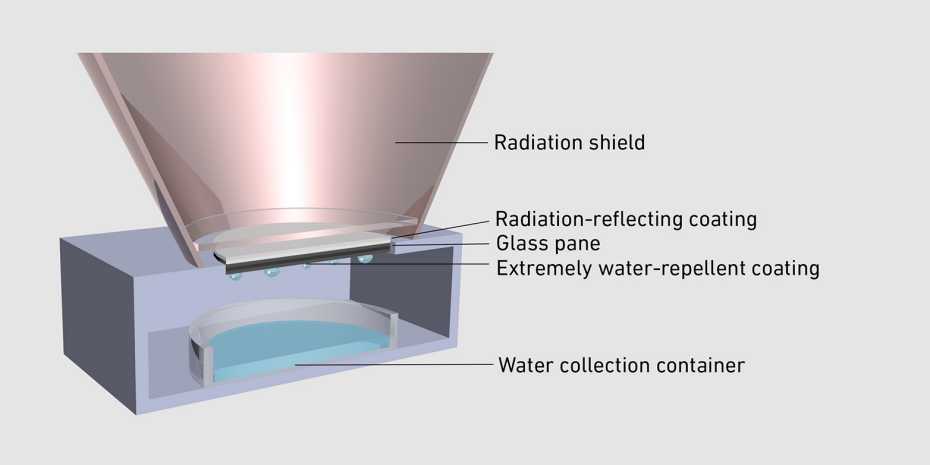
A team of researchers at ETH Zurich has developed a zero-energy self-cooling condenser that can harvest water from the atmosphere throughout the 24-hour daily cycle.
In the past, passive technologies for atmospheric water harvesting, such as dew-collecting foils, have only worked at night because heating by the sun makes condensation impossible. In contrast, the technology enables water harvesting around the clock, with no energy input, even under the blazing sun.
The new device is based around a glass pane coated with layers of silver and a specifically designed polymer. The pane both reflects solar radiation and radiates away its own heat, thus cooling itself down to as much as 15 degrees Celsius below the ambient temperature. This temperature differential causes atmospheric water vapour to condense into water on the underside of the pane, which features a novel superhydrophobic coating that causes the condensed water to bead up and run or jump off on its own accord.
The device also features a novel cone-shaped radiation shield that largely deflects heat radiation from the atmosphere and shields the pane from incoming solar radiation, while at the same time allowing the device to radiate heat outward and thus to self-cool, fully passively.

Tests of the device under real-world conditions on the roof of an ETH building in Zurich demonstrated that it is capable of produce at least twice as much water per area per day as the best current passive technologies based on foils. The small pilot system, which has a pane diameter of ten centimetres, produced 4.6 millilitres of water per day.
According to the research team, under ideal conditions, the device could harvest up to 0.53 decilitres of water per square metre of pane surface per hour. ‘This is close to the theoretical maximum value of 0.6 decilitres per hour, which is physically impossible to exceed,’ said Iwan Hächler, a doctoral student who worked on the project.
The researchers suggest that the device could be scaled up and deployed in multiples to create a large-scale system that could provide drinking water to remote communities the lack access to electricity. ‘In contrast to other technologies, ours can really function without any additional energy, which is a key advantage,’ said Hächler.


